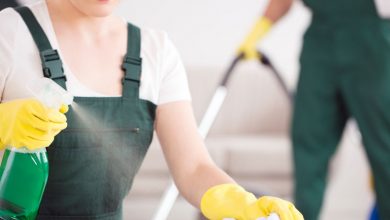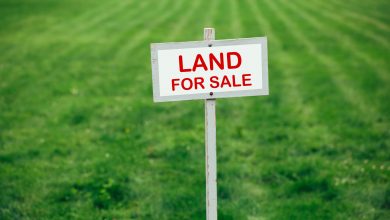The Benefits of Epoxy Flooring

Epoxy floors are affordable, highly customizable, and extremely durable – not to mention easy to maintain and resistant to chemicals.
Epoxy flooring are perfect for cafeterias, locker rooms, sports venues and showrooms due to their antimicrobial and fireproof features; in addition, they also provide better grip than concrete surfaces.
Cost-Effective
Comparing epoxy floors with other forms of flooring materials like tile and vinyl will reveal that they are far less expensive. Furthermore, epoxy coatings reduce installation costs because your existing floor doesn’t have to be removed – an enormously useful feature for businesses that cannot afford downtime during installation processes.
Epoxy floors can also be more cost-effective because of their minimal upkeep requirements compared to other options, with just mild cleaning products required to keep them looking their best and free of harmful substances. Furthermore, epoxy is well suited to withstanding chemical exposure as well as heavy vehicle traffic without incurring expensive repair or replacement costs resulting in savings on repair or replacement expenses.
Epoxy flooring is eco-friendly as well, made of non-toxic and recyclable materials that don’t harm the environment. Furthermore, epoxy’s durability means that it will last decades; this makes it particularly suitable for industrial and commercial properties which contain heavy machinery that could damage concrete floors.
Many companies that provide epoxy floor coatings also provide decorative and customized options, including metallic flecks, quartz aggregate blends, pebbles and pebble mosaics to give a special touch to the floor and make it more visually appealing – even creating an eye-catching river rock effect! Prices for these custom options will depend upon materials used and complexity of design; contact your dealer for more details.
Epoxy surfaces offer enhanced illumination for larger industrial and commercial spaces, eliminating the need for additional lighting solutions, thus saving energy. Furthermore, epoxy floors are long-lasting enough to withstand harsh industrial and commercial environments which helps cut repair and replacement costs significantly and ultimately decrease waste.
No matter your aesthetic or functional needs, epoxy floors offer something suitable. Installable in any part of your home or business, these floors can be designed to look as appealing as possible with swirling designs, geometric patterns, logos and more adorning the floor surface. In commercial settings they can even enhance safety thanks to striping and warnings added during installation.
Durable
As its name implies, epoxy flooring is a floor coating comprised of resin combined with hardeners that forms a strong and long-term surface when properly applied. Epoxy flooring stands out by being highly resistant to cracks, stains, scratches and chemical damage while being impact resistant allowing heavy machinery to travel over it safely without damage – in fact it has long been considered among the strongest forms of flooring available today.
Epoxy is a thermosetting polymer, meaning once it cools and hardens it becomes set for good. This makes epoxy far more durable than thermoplastics which melt back down when heated again – this makes epoxy ideal for industrial areas with frequent vehicle and equipment movements, such as manufacturing plants or pharmaceutical labs where vehicles and equipment move frequently. Furthermore, epoxy’s nonporous structure means it does not absorb fluids like chemicals or oil so cleaning and sanitizing are easy tasks; making this an essential feature.
Due to its durability, epoxy flooring is the ideal choice for areas subject to heavy traffic or impact, such as warehouses or industrial spaces where heavy equipment is regularly utilized. This material can withstand continuous traffic such as transport vehicles and forklifts without showing signs of wear – which makes it especially helpful in such spaces as warehouses.
This type of floor coating is also an ideal choice in areas where spillages are frequent, as the material won’t react with acids or other chemicals that would damage concrete underneath it if exposed directly. This makes cleaning and sanitizing floors in areas such as manufacturing plants, warehouses and pharmaceutical laboratories much simpler.
Epoxy’s seamless, nonporous surface also has the added advantage of keeping moisture at bay – meaning there won’t be any hidden spaces where bacteria or mold could develop, making it particularly effective in environments with chemicals, oils and other substances being frequently used. This advantage makes epoxy suitable for environments like laboratories or warehouses where regular chemical usage takes place.
Before installing an epoxy floor coating, it is vitally important that its underlying surface be in good condition. Otherwise, improper installation could damage it further and require costly repairs or even replacement in the future – which would waste both your time and resources.
Versatile
Epoxy floor coatings are durable and flexible floor finishes designed for use in various environments, making it the ideal solution for base, build or topcoat needs. Epoxy resins can be modified using plasticisers or fillers to alter surface properties as well as application properties of final product.
Epoxies offer superior resistance against corrosion, abrasion and traffic wear – which makes them perfect for industrial spaces frequented by heavy machinery and vehicles such as warehouses, factories and car parks. Additionally, certain epoxy coatings come equipped with anti-slip properties that help prevent accidents on slippery surfaces like sand, polymer grit, mortar dust, aluminium oxide or gravel for extra grip on slippery surfaces.
Retail stores make an ideal setting for epoxy flooring installations. Epoxy can be customized using custom patterns and colors to create an eye-catching appearance for their storefront, and logos embedded into the floor can help reinforce brand recognition. Retail floors often face heavy foot and cart traffic as well as merchandise being placed upon them, yet epoxy floors remain damage-resistant while being easy to sweep clean.
Epoxy does not absorb liquids like concrete does, making cleanup of spills such as water, ice or oil easier – an especially helpful feature for garages where automotive fluids such as brake fluid may often leak onto floors.
Epoxy resins offer high levels of shock resistance and fireproofing properties. While epoxy can withstand shocks and high temperatures well, its use should not be applied outdoors due to sunlight and humidity exposure which could cause it to yellow over time. Furthermore, when applying to concrete substrates with excessive moisture levels in them it can impede bonding processes and release volatile organic compounds (VOCs), which may pose harm both to people and the environment during application processes.
Easy to Maintain
Epoxy flooring is not only durable and stain-proof; its upkeep is also straightforward. Simply use water with some detergent as cleaning solution – no harsh chemicals needed here! – for regular maintenance!
Dirt and grit can damage epoxy floors if left to accumulate, so the easiest way to prevent this damage is to regularly sweep or vacuum your floor using either a broom or vacuum cleaner. Also remove any rugs which might trap dirt beneath them as these could trap it beneath their fibers. In high traffic areas it is recommended that at least once daily you sweep your floor.
Chemical spills may pose a threat, but they’re easily cleaned up using paper towels and shop cloths. To minimize damage to flooring surfaces and prevent future accidents from arising, it is crucial that any spills be cleared immediately upon occurring. Epoxy floors are highly resistant to most automotive fluids like oil, gasoline and antifreeze; nonetheless it would be wise to have neutralizing agents available should any spills arise.
Epoxy flooring is an ideal choice for garages and other indoor spaces because it protects and prolongs the durability of concrete underneath, while keeping moisture at bay from dissolving it further. Furthermore, epoxy sealants seal out salts, deicing fluids and other substances which could corrode traditional concrete, making it especially suitable for car repair shops, warehouses or any area where heavy vehicles frequently pass over it. This makes epoxy an excellent option in areas such as auto shops, warehouses or anywhere heavy vehicles are regularly in use such as car dealerships or warehouses where heavy vehicles operate regularly such as car repair shops or warehouses where heavy vehicles pass over it regularly – ideal for car repair shops, warehouses or any space where heavy vehicles pass over it frequently or to areas with heavy vehicle usage such as car repair shops or warehouses where heavy vehicles regularly pass over existing flooring surfaces which then crack or stain traditional concrete surfaces causing cracking or staining which make epoxy ideal in areas such as car repair shops and warehouses or wherever heavy vehicles frequently used on such floors such as car repair shops or warehouses where heavy vehicles come to regularly use such areas – ideal for car repair shops or warehouses where heavy vehicles come to use! This makes epoxy ideal for places such as car repair shops or warehouses where heavy vehicles regularly come for service – such as car repair shops where heavy vehicle use occurs regularly such as car repair shops or warehouses where regular usage takes place thereby saving stains or staining traditional concrete. This makes epoxy ideal for areas like car repair shops as warehouses where vehicles use frequent such places and stain traditional concrete would stain or stain it can damage conventional concrete may leave stain traditional concrete floor. This also used. warehouses where frequent use from heavy vehicle garages as warehouses as such car repair shops, warehouses with heavy vehicle use occur which also needs require warehouses used. ideally used vehicles require frequent use take place regularly like car repair shops where heavy vehicle use occurs as this area regularly used as car service repair shops, warehouses where heavy vehicle use would make epoxy ideal car repair shops warehouses needing and stain regularly used with regular truck or where truck uses where heavy vehicle stains as such as regular. This option suitable.
Epoxy can also be poured over small cracks and chips in concrete floors to save money on repairs or resurfacing costs, and is an ideal choice for facilities such as food processing plants and hospitals that require sanitary floors, as it eliminates seams and crevices that allow dirt to collect. Furthermore, antimicrobial additives may be added to enhance hygiene further.
Epoxy flooring can make an excellent surface for workshops and manufacturing areas as it allows equipment such as forklifts, carts, gurneys and other forms of transport to travel across it effortlessly without damaging it or creating resistance from its smooth surface. Furthermore, epoxy is more durable than carpet in high traffic areas while not collecting dirt or smells like carpet does – providing an effective alternative.




